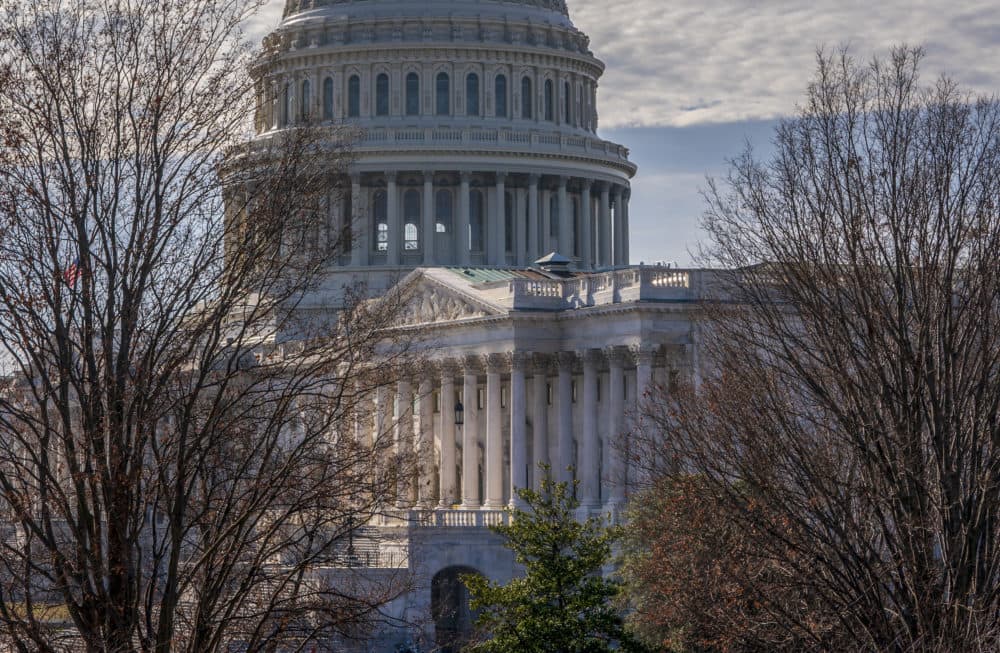Advertisement
State Agencies Prepare To Adjust If Shutdown Continues

With Congress returning to Washington on Thursday to restart talks over reopening the government, Massachusetts financial managers are examining how the partial federal government shutdown could affect the state.
The partial government shutdown stretched into its sixth day, and state officials said the impacts of the shutdown may not be felt immediately but will become more obvious at state agencies that receive federal grant funding after a period of weeks and, in some cases, months if Congress and the White House cannot agree on a funding bill.
On Thursday, state officials said the Comptroller's Office and Executive Office of Administration and Finance are still working with state agencies and departments to identify potential areas of concern should the shutdown stretch longer.
With the possibility of a late-year shutdown looming, First Deputy Comptroller Jeffrey Shapiro and A&F Budget Director Catharine Hornby sent a memo to chief state fiscal officers, budget directors and general counsels on Dec. 14 offering guidance in the event of a shutdown they said could "create potential challenges." The memo also requested that agencies submit information on their contingency planning.
The accounts most at risk of "disrupted fiscal operation" caused by the partial federal shutdown are those that receive federal money through the General Federal Grants Fund, the memo said.
"If you conclude the continuation of your grant is unlikely, prepare actions to discontinue spending against such grant," Hornby and Shapiro wrote. "To the extent continued spending depends on further federal budget legislation, you should not incur obligations against the grant beyond the date through which the federal granting department has made funding available."
The memo also added, "It is crucial that grant obligations are monitored continually to assure grant programs meet requirements but do not rely on any Commonwealth resources without specific legislative authorization."
While some federal employees are working without receiving a paycheck during the shutdown, Hornby and Shapiro estimated that a prolonged shutdown could create payroll concerns for the roughly 3,600 employees who are paid from federal funding sources across state government.
The office of Administration and Finance said there are large areas of federal spending that are not impacted by the shutdown since Congress has enacted full-year appropriations bills for certain agencies. State officials said federal reimbursements to the state for MassHealth are not affected by the shutdown.
Advertisement
According to the state, the seven areas of spending that have seen a lapse due to the shutdown are: Commerce, justice, science and related agencies; Interior, environment and related agencies; Financial services and general government; Agriculture, rural development, Food and Drug Administration and related agencies; Homeland Security; Transportation, Housing and Urban Development and related agencies; and State, foreign operations and related agencies.
On Thursday, the Massachusetts Society of Enrolled Agents detailed what the year-end shutdown means for the U.S. Internal Revenue Service, with which federally-licensed tax practitioners who belong to the society work closely.
"If past experiences are any indication, the government is allowed to function in general activities that process revenue," the organization said. "A shutdown will not delay levy and garnishments. The shut down does not extend the time to make payments. Year-end, quarterly estimates, and installment agreements are still due as scheduled. Some appeals and Office of Chief Counsel staff may be on hand. Criminal Investigations is still working."
The society said hearings in tax court will be rescheduled, local I.R.S. offices will be closed, refunds will not be issued, paper returns will not be processed and informational phone lines will not be answered during the shutdown. The group said statutory deadlines will not be extended due to the government closure.
The shutdown comes as Democrats in Congress and President Donald Trump have each dug in their heels around funding for heightened security at the southern border, including money for a wall that Trump made a central part of his presidential campaign.
Trump is reportedly seeking $5 billion in funding for a border wall and has rejected alternative proposals that Democrats claimed could pass both Republican-controlled branches.
"The fact is, they've always supported fences and walls and partitions, but you know what, they only don't want to do it because of me," Trump said of Democrats in a video he posted to Twitter last week. "We need to have the wall, we need border security. Whatever it takes to get border security, I will do it."
The U.S. House of Representatives and the U.S. Senate are each scheduled to return to session Thursday to resume talks over restoring government funding and reopening the federal government.